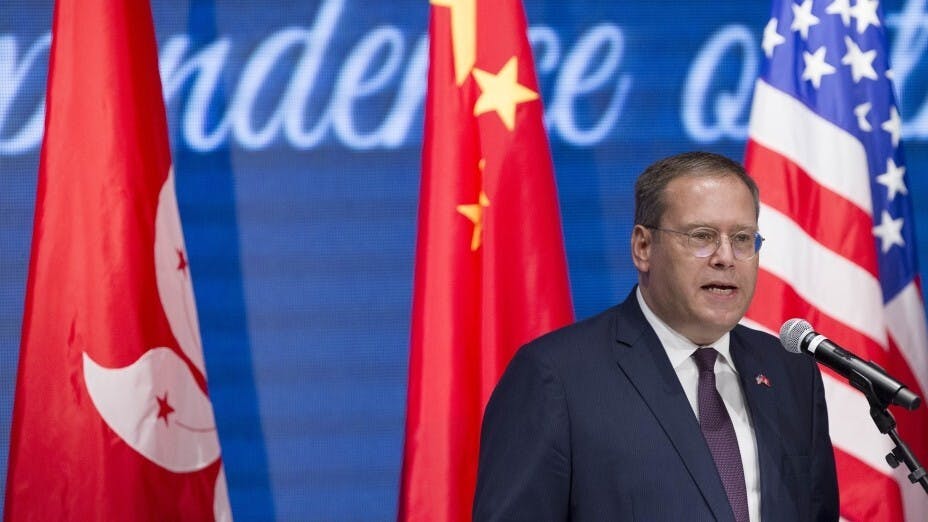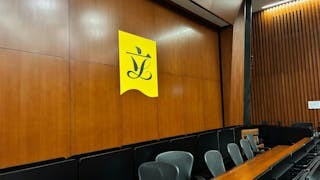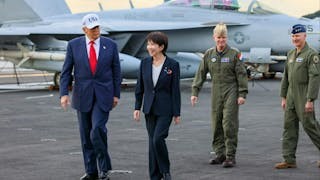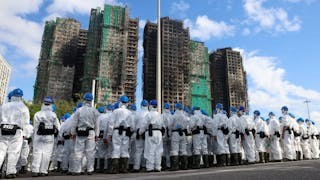編按:美商亞洲集團管理合夥人、美國駐港澳前總領事唐偉康先生(Kurt Tong)應邀出席灼見名家九周年論壇,以「發揮兩制優勢且管控不同風險因素,香港競爭力猶存」為題發表演說。他曾撰文分析美國對中國實施制裁措施的利弊,認為香港的情況說明了透過經濟脫鈎來支持地緣政治競爭的局限。
隨着北京不顧外界的抗議,繼續限制香港的政治自由,許多西方觀察家自我安慰地認為,中國最終將為其一意孤行付出沉重代價。這種看法認為,北京的壓制將不可避免導致香港的國際金融中心地位消亡。包括《彭博》專欄作家邁克爾·舒曼(Michael Schuman)和記者威廉·佩塞克(William Pesek)在內的多位分析人士預測,香港經濟陷入困境將是法治惡化下不可避免的結果;香港將成為中國與西方「脫鈎」的犧牲品,將為北京帶來比華盛頓更多的痛苦。
華盛頓的「對華鷹派」對這種看法顯然覺得非常中聽。然而,到目前為止,這個預言並沒有成真。2021年首季,香港警方拘捕數量空前的「政治犯」,同時北京宣布「完善香港選舉制度」,把香港的選舉機制削弱,但香港證券交易所的首次公開募股數量仍在全球排名第四,此類交易的集資額排名全球第二。在香港經營的外資銀行紛紛大舉招聘,尋找投資中國經濟的新機會。儘管傳媒大肆報道,中國2020年7月在香港實施嚴格的《香港國安法》以來,一些不放心的香港家庭將部分資產轉移到新加坡或其他地方,但與來自中國大陸和海外大量的穩定資金流湧入相比,這些移出香港的資產相形見絀。
香港政治環境和經濟狀況的矛盾,反映了這樣一個事實,即政治對引領財務和商業決策的核心誘因影響有限。大型經濟體的引力是一股強大的力量──甚至可能強大到足以頂住中國與西方之間日益加劇的抗衡。
香港政治與經濟的矛盾局面,讓西方政府感到進退兩難;西方政府更多地希望香港的命運成為一個警世故事,而不是一個成功故事。外國政府幾乎沒有任何特別工具既可「懲罰」中國違反對香港的承諾,同時又不損害自己國家的利益和香港無辜旁觀者的生計。香港事態的發展表明,華盛頓及其夥伴要與中國進行全面的「戰略競爭」將會多麼艱難!
近期對在香港的外國商業組織進行的一項調查顯示,在香港開展業務但總部位於七國集團國家的公司中,有三分之一或許正在考慮減少人員或業務,這主要是因為《香港國安法》引起的憂慮。 《香港國安法》大大改變了人們以往對香港作為自由港和國際商業中心的看法。
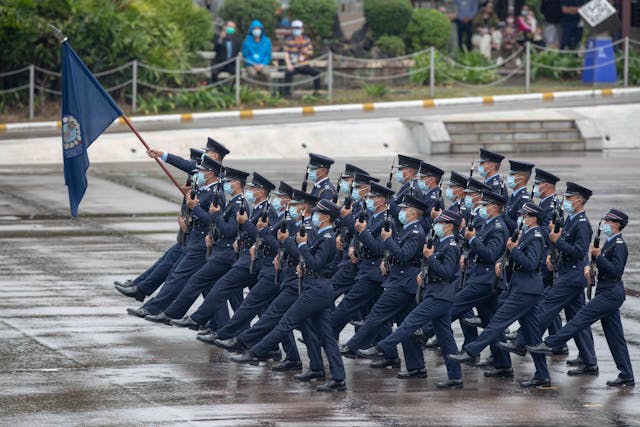
儘管香港民主制度空洞化,它對美國仍然非常有用
毫無疑問,現時在香港做生意承受的政治風險較幾年前為高,即使對於匯豐控股等最大型的非中資公司亦不例外。 2019年,這家著名的金融機構發現被北京盯上了──根據很多報道,中共認為該銀行對香港街頭抗議活動的反應,顯示對北京的忠誠度不夠。匯豐銀行高層公開「叩頭」的言論,似乎讓該行贏得北京的好感,儘管一些觀察家猜測該銀行可能會正式分拆成英國和香港兩個部分,以避免未來的法律和商譽難題。儘管如此,沒有跡象顯示這兩部分的業務會停止專注於中國內地或香港,因為這兩個地區合計佔該銀行利潤的最大份額。
迄今為止,對法治的擔憂並未促使其他大型外資公司大幅裁員,這些公司似乎認為,適用於商業法的香港核心法律傳統大部分保持不變。 針對民主活動人士高度政治化的起訴,並沒有在商業世界發生。 一些投資者擔心,香港當局對反對派傳媒的行動,可能會導致網絡封鎖,並最終導致中國共產黨將香港置於所謂「防火長城」(中國國家防火牆)之內,但大多數人仍然抱有希望,相信北京方面會了解,這將對香港的全球競爭力及其作為資金進出中國的管道有多大損害。
終極標靶
中國無疑是違背了保留香港真正「高度自治」的承諾,但外國政府發現他們幾乎沒有能力拖慢或扭轉北京的政策。
以美英為首的西方國家政府發表強硬聲明,實施制裁,推遲峰會,取消雙邊合作協議,並根據自己國家的法律改變香港地位,以反映香港變化的現實。包括澳洲和加拿大在內的其他國家也跟英國一起放寬了對香港流亡者的移民規定。然而,所有這些步驟似乎只會更加堅定中國國家主席習近平加強控制香港政治事務的決心。整體而言,西方國家不過是「雷聲大雨點小」。
以美國國會2020年通過的《香港自治法案》為例,該法案授權美國財政部,對國務院一份特別報告中被指損害香港自治的中國官員有業務往來的中資銀行實施懲罰。然而,迄今為止,財政部尚未根據該法案懲罰任何銀行。 其中一個原因是可能成為目標的銀行,已經解除了與個別被指有問題人士的關係。不過,美國財政部也知道,對中國主要銀行實施制裁可能會中斷世界最大兩個經濟體之間的巨額金融交易,引發國際支付體系的嚴重不穩定,反過來會損害美國金融市場,及以美國為中心的全球支付系統的可靠性。
目前沒有切實可行的方法來針對香港實施金融制裁:任何針對中國大型銀行的行動都會迅速升級為對中國金融體系的全面攻擊。因此,此類攻擊將導致全球金融不穩定、美國國民儲蓄的損失,並促使中國加倍努力創建替代美元主導的SWIFT支付系統的方案。一旦出現這些情況,會嚴重損害美國經濟。
更有甚者,針對香港的金融業──中國最關心這個城市的一個方面──幾乎肯定會直接和間接對香港市民造成嚴重的傷害,而不是對北京決策者造成傷害,這讓一直以來最堅定支持香港及其民主運動的美國國會議員猶豫不決。
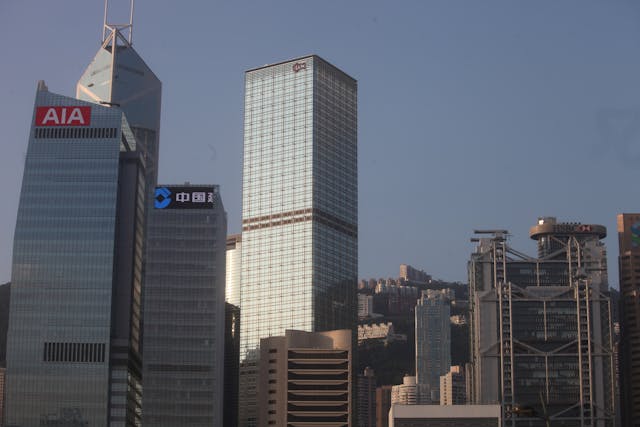
缺乏槓桿作用
美國、英國和其他國家因為北京在香港的作為,有聲音要求懲罰中國是自然而明顯的,但外部勢力缺乏影響中國政策的影響力。 令人不安的事實是,儘管香港的民主制度已經空洞化,但它對美國和其他西方大國仍然非常有用,而且它作為金融市場和通往中國的經濟門戶的持續成功對全球經濟仍然很重要。
華盛頓及其合作夥伴應該降低期望,放棄認為正確的懲罰措施將促使中國政策轉變的幻想。
相反,主要民主國家的目標,應該是向世界其他國家強調中國違背了承諾,這將會對北京的可信度和信譽產生懷疑的效果。畢竟,如果它違背了對香港的承諾,為什麼相信它不會在其他地方做同樣的事情? 提醒世界香港失去的民主傳統也將表明,儘管中國實力雄厚,美國及其盟友仍然重視民主,並相信民主可以在任何地方發揮作用,包括在華語社會。為了最有效地發揮作用,西方國家需要協調譴責北京在香港行為的信息,並定期和一致地發出這些信息,因為在傳媒注意力已經轉向其他地方之後,中國和其他國家的官員將關注華盛頓及盟友是否繼續關心香港。
現時在香港做生意的政治風險比幾年前更高
美國也應該與其他國家一起,制定類似目前國會正在審議至少兩項法案的法則,這些法案將使香港人在感到在香港面臨危險時更容易移居美國。考慮到政治鎮壓的性質,這樣的舉動在道德上是合理的,而且在策略上也很有力,因為它將向中國和其他地方的觀察家表明,美國仍然是民主領袖的避風港。
最後,美國應該繼續對那些對香港新的鎮壓行動負主要責任的個人實施制裁,不是因為這種懲罰有效──中國官員一旦受到華盛頓制裁,他們實際上會得到晉升──而是因為已經實施了前兩輪制裁後,現在若放棄這些制裁,將會向中國和全球觀察家發出美國關於對香港承諾的強度和持久性的錯誤信號。
競爭與限制
香港的情況有效地說明了透過經濟脫鈎來支持地緣政治競爭的局限。幸運的是,美國總統拜登的政府似乎了解這些局限。儘管在「戰略競爭」方面言辭強硬,但迄今為止,美國政府優先考慮的是保持對中國的技術領先地位,而不是尋求與中國經濟大規模脫鈎或令其陷入困境。國會可望採取類似冷靜的做法。
美國很自然會尋找方法來應對中國不斷增長的實力,並阻止北京挑戰美國全球領導地位。不過,美國無法讓中國後悔──更不用說扭轉北京違反香港高度自治的行為,這說明金融脫鈎、制裁和經濟壁壘,並不像華盛頓許多人認為那麼可靠。
Hong Kong and the Limits of Decoupling: Why America Struggles to Punish China for Its Repression
As Beijing pushes forward with its crackdown on political freedom in Hong Kong, undeterred by protests from outside China, many Western observers have comforted themselves with the notion that China will eventually pay a hefty price for its aggression. The crackdown, in this view, will inevitably lead to Hong Kong’s demise as a global financial center. A number of analysts, including the Bloomberg columnist Michael Schuman and the journalist William Pesek, have predicted that a hobbled Hong Kong economy will be the unavoidable result of the deterioration of the rule of law and that the territory will wind up a casualty of the “decoupling” between China and the West—one that will cause Beijing more pain than Washington.
The appeal of that view for China hawks in Washington is obvious. So far, however, the prediction has not held up. In the first quarter of 2021, as Hong Kong authorities rounded up unprecedented numbers of political prisoners and Beijing announced a sweeping dilution of the city’s electoral institutions, Hong Kong’s stock exchange ranked fourth globally in the number of initial public offerings and second in the volume of proceeds from such deals. Foreign banks operating in Hong Kong have gone on a hiring spree, eyeing new opportunities to invest in China’s economy. And despite much media hype, the trickle of assets that skittish Hong Kong families moved to Singapore or elsewhere in the aftermath of China’s imposition, in July 2020, of a stringent new National Security Law in Hong Kong has been dwarfed by a steady flow of capital pouring into the city from mainland China and foreign countries.
The contradiction in Hong Kong’s political and economic circumstances reflects the fact that politics only narrowly affects the core incentives that guide financial and business decisions. The gravitational pull of large economies is a powerful force—maybe even strong enough to resist the growing antagonism between China and the West.
The Hong Kong paradox presents a dilemma for Western governments that would prefer the city’s fate to be more of a cautionary tale than a success story. Foreign governments have few tools to specifically punish China for its broken promises to Hong Kong without simultaneously hurting their own national interests and damaging the livelihoods of innocent bystanders in the territory. The way things are playing out in Hong Kong demonstrates just how hard it will be for Washington and its partners to carry out a comprehensive “strategic competition” with China.
Recent surveys of foreign business organizations in Hong Kong show that perhaps one-third of companies that do business there but are headquartered in countries belonging to the G-7 are contemplating a reduction in personnel or operations, mostly because of concerns raised by the new National Security Law, which has dramatically changed previous perceptions of the city as a freewheeling and cosmopolitan business center.
Hong Kong, despite the hollowing out of its democratic system, remains tremendously useful to the United States.
There is little doubt that the political risk of doing business in Hong Kong is higher now than it was several years ago. This is true even for the largest non-Chinese firms, such as HSBC Holdings. In 2019, that storied institution found itself in Beijing’s cross hairs: according to multiple reports, the Chinese Communist Party had seen the bank’s responses to street protests in Hong Kong as demonstrating insufficient loyalty to Beijing. Public rhetorical kowtows by the bank’s leadership appear to have kept HSBC in China’s good graces, although some observers have speculated that the bank might formally split into British and Hong Kong halves to avoid future legal and reputational conundrums. Still, no one is suggesting that either half would stop focusing on China or Hong Kong, which together account for the lion’s share of the bank’s profits.
And to date, concerns about the rule of law have not prompted much downsizing by other major foreign firms, which seem to believe that Hong Kong’s core legal traditions, as applied to commercial law, remain for the most part unchanged. The highly politicized prosecution of democracy activists has seen no parallel in the business world. Some investors worry that the Hong Kong authorities’ campaign against opposition media outlets could lead to Internet blockages and to the Chinese Communist Party eventually placing Hong Kong inside the so-called Great Firewall of China. But most remain hopeful that Beijing understands how much damage that would do to Hong Kong’s global competitiveness and its utility as a conduit for financial flows in and out of the country.
A HARD TARGET
There is little doubt that China has broken its promises to preserve a genuine “high degree of autonomy” for Hong Kong. But foreign governments are finding that they have little ability to slow down or reverse Beijing’s policies.
Western governments, led by the United States and the United Kingdom, have issued strong statements, implemented sanctions, delayed summits, canceled bilateral cooperation agreements, and changed Hong Kong’s status under their national laws in order to reflect the city’s changed reality. Other countries, including Australia and Canada, have also joined the United Kingdom in easing immigration rules for Hong Kong exiles. All of these steps, however, seem only to have strengthened Chinese President Xi Jinping’s resolve to tighten his grip on Hong Kong’s political affairs. In general, Western countries’ bark has been worse than their bite.
Take, for example, the Hong Kong Autonomy Act, which the U.S. Congress passed in 2020. The law authorizes the U.S. Treasury Department to levy punishments against Chinese banks that do business with Chinese officials who have been tagged in a special State Department report for harming Hong Kong’s autonomy. To date, however, Treasury has not punished any banks under the act. One reason is that the banks that might have been targeted have unwound their relationships with problematic individuals. But Treasury also knows that slapping sanctions on major Chinese banks could trigger significant instability in the international payments system, by interrupting the huge volume of financial transactions between the world’s two largest economies. That would in turn harm U.S. financial markets and the perceived reliability of the U.S.-centric global payments system.
There is no practical way to make financial sanctions Hong Kong–specific: any actions against a major Chinese bank would quickly escalate into a full-scale attack on China’s financial system. Such an attack, therefore, would lead to global financial instability, lost national savings for the United States, and redoubled Chinese efforts to create an alternative to the dollar-dominated SWIFT payments system. All of those developments would significantly damage the U.S. economy.
What is more, targeting Hong Kong’s financial sector—the aspect of the city that China cares about most—would almost certainly hurt Hong Kongers even more severely, in both absolute and relative terms, than it would hurt policymakers in Beijing. That has given pause to members of the U.S. Congress who have been the most consistent supporters of Hong Kong and its democracy movement.
LACKING LEVERAGE
The urge in Washington, London, and other capitals to punish China for what it has done in Hong Kong is natural and palpable, but outside powers lack leverage to influence Chinese policy. The uncomfortable truth is that Hong Kong, despite the hollowing out of its democratic system, remains tremendously useful to the United States and other Western powers, and its continued success as a financial market and economic gateway to China remains important for the global economy.
Washington and its partners should lower their expectations and abandon the illusion that the right mixture of punishments will prompt a reversal in Chinese policy.
The goal of leading democracies should instead be to highlight to the rest of the world that China broke its promises, which will have the effect of sowing doubt about Beijing’s trustworthiness and credibility. After all, if it broke its promises to Hong Kong, why believe it won’t do the same elsewhere? Reminding the world of Hong Kong’s lost democratic traditions will also demonstrate that despite China’s strength, the United States and its allies value democracy and believe it can work anywhere, including in Chinese-speaking societies. To be most effective, Western countries need to coordinate their messages condemning China’s actions in Hong Kong and issue them regularly and consistently, since officials in China and other countries will be watching to see if Washington and its partners continue to care about Hong Kong after media attention has turned elsewhere.
The political risk of doing business in Hong Kong is higher now than it was several years ago.
The United States should also join others in adopting rules similar to at least two bills currently pending in Congress that would make it easier for Hong Kongers to move to the United States if they feel in danger in the territory. Such a move would be morally justified, given the nature of the political crackdown, and tactically powerful, since it would show observers in China and elsewhere that the United States remains a haven for democratic leaders.
Finally, the United States should continue to apply sanctions on individuals who are responsible for major new repressive moves in Hong Kong, not because such punishments work—Chinese officials actually get promoted if they get sanctioned by Washington—but because to abandon them now after already carrying out two previous rounds of sanctions would send the wrong signal to China and global observers about the intensity and durability of the U.S. commitment to Hong Kong.
COMPETITION AND CONSTRAINTS
The situation in Hong Kong usefully illustrates the practical limits of pursuing economic separation to support geopolitical competition. Fortunately, the administration of U.S. President Joe Biden appears to understand the constraints. Despite its tough rhetoric about “strategic competition,” the administration has so far prioritized maintaining a technological lead over China rather than seeking wholesale decoupling or hobbling of the Chinese economy. Congress will hopefully arrive at a similarly sober approach.
It is only natural for the United States to look for ways to counter China’s growing power and to push back against Beijing’s bid to challenge U.S. global leadership. But the United States’ inability to make China regret—much less reverse—its transgressions in Hong Kong suggests that financial separation, sanctions, and economic barriers are less reliable tools than many in Washington believe.
原刊於《外交雜誌》(Foreign Affairs),本社獲作者授權轉載。
唐偉康(Kurt Tong) 簡介:
美商亞洲集團管理合夥人兼執行委員會成員。東亞外交和經濟事務領域的頂尖專家,在美國國務院擔任職業外交官員和高級外交官員的工作長達30年。在加入美商亞洲集團之前,於2016-19年擔任美國駐港澳總領事。此前他主力參與東亞事務,在2014-16年期間,擔任國務院經濟暨商業事務局首席副助理國務卿,作為處理經濟事務的最高級職業外交官,指導國務院的機構強化工作。
世界地緣政治演變對香港的挑戰系列 7



